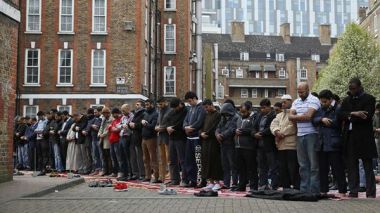British mosques serve tea and cake to build bridges after Charlie Hebdo attack

In a bid to encourage inter-faith dialogue, a number of mosques across Britain decided to open their doors at the weekend to non-Muslims to promote interaction with the Muslim community.
Organised by the Muslim Council of Britain, the open door outreach involved 20 mosques located across the country. Non-Muslims were invited to come and visit the nearest participating mosque to learn more about what happens behind the doors of Muslim places of worship and to "demystify" whatever worries people have about Islam.
The open day was held to ease tensions after an attack by radical Muslims on the Paris offices of Charlie Hebdo last month.
"Because of the 'negative publicity' of Islam and the perception, it was important to open the doors so people could come and look at it themselves and see what happens," Council General Secretary Shuja Shafi told Sky News.
"Mosques are not just places of worship. They are a hub for the community. People can see a wide range of activities and this demonstration will help community cohesion," Secretary Shafi added.
The outreach programme is meant "to demonstrate unity and solidarity during what has been a tense time for faith communities," the organisation stated. Visitors who dropped by were served tea and cakes, and were allowed to observe the activities that Muslims undertake within their mosques.
The effort came after Communities Secretary Eric Pickles wrote to various mosques in the country encouraging them "to do more to root out extremists" in their midst. Pickles also urged action from the mosques to "prevent young people being radicalised."
Lord Dannatt, former chief of the army, spoke to Sky News about the importance of intercommunity cooperation to prevent extremism.
"It's really important that our communities - particularly where there are large Muslim populations - organise themselves and conduct matters in such a way that particularly young Muslims have a stake in the future of this country, and this country has a future in them," he said in an interview.











